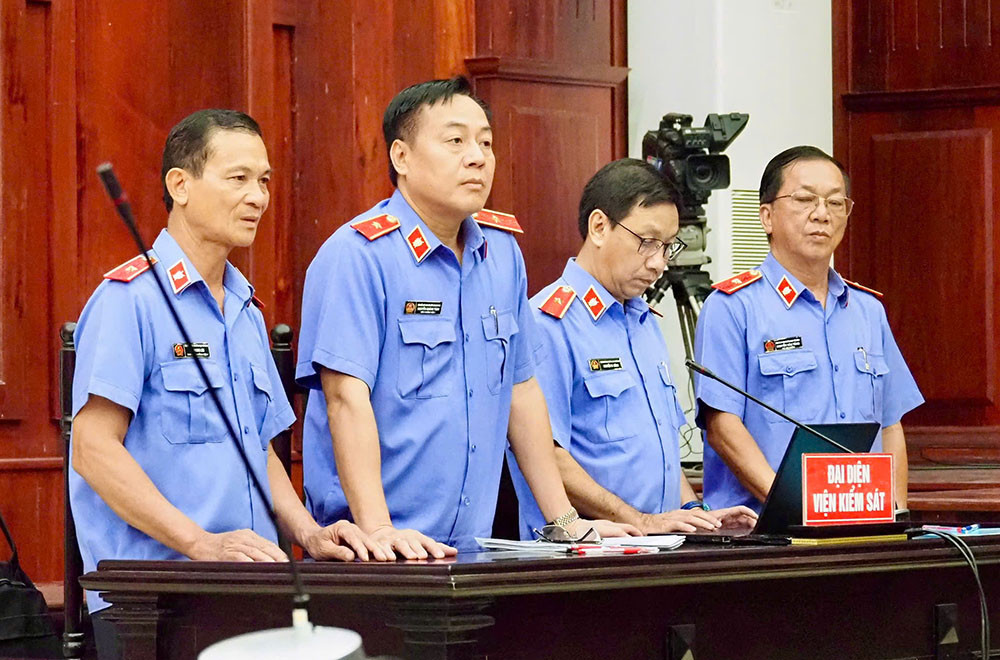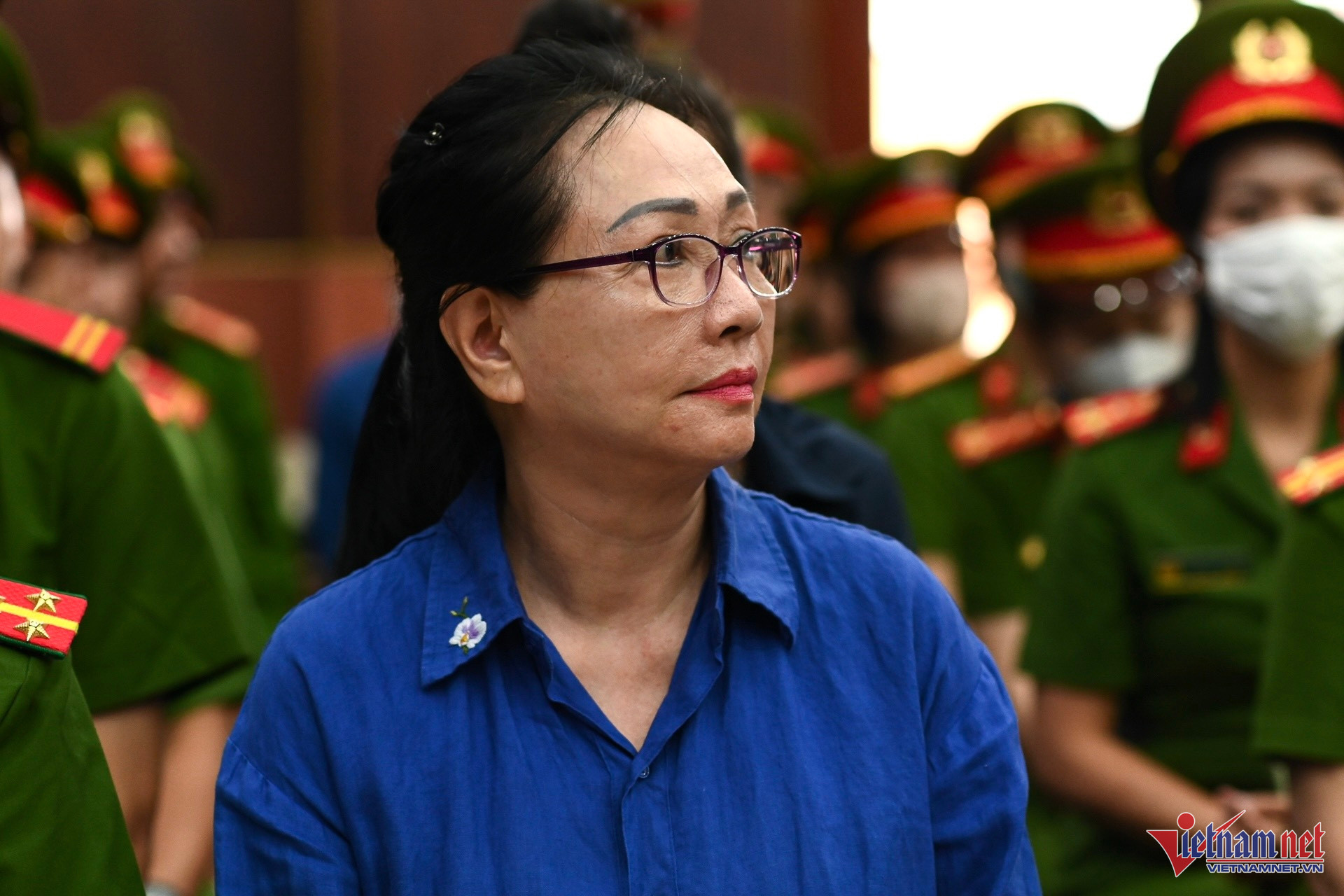In response to the defense's proposal to allow Truong My Lan to participate in asset handling and the restructuring of Saigon Commercial Bank (SCB), the representative of the People's Procuracy stated that asset handling falls under the jurisdiction of the Ho Chi Minh City Civil Judgment Enforcement Department and is not within the scope of the appellate trial proceedings.

The People's Procuracy representative maintains the right to prosecution at the trial. Photo: TC
On April 8, the appellate trial for phase two of the Van Thinh Phat case continued with rebuttals from the Procuracy in response to the defense arguments made by the lawyers and the defendants.
The People's Procuracy representative argued that, based on a comparison with the first-instance verdict, there were no new details at the appeal hearing that would change the nature of the case. The original ruling had already assessed the degree of involvement, role, and mitigating factors for each defendant, leading to what the People's Procuracy considered appropriate sentencing decisions.
However, the prosecution acknowledged that some defendants had made further efforts to remedy the consequences during the appellate phase and that a few new factors had emerged. These were taken into account in an objective manner, prompting the People's Procuracy to recommend further sentence reductions for certain defendants.
Regarding requests to clarify the causes and context of the case, the People's Procuracy responded that both phases of the case had been thoroughly examined and evaluated. All relevant findings were detailed in the investigation report and indictment, and had been extensively debated and clarified during the first-instance trial.
No basis for claim that Lan didn’t use bond proceeds
In response to the defense's claim that Truong My Lan did not personally use the funds raised through bond issuances, the People's Procuracy said this argument lacked foundation. The prosecution cited testimony from Bui Van Dung, Lan’s personal driver, who admitted to making multiple trips to SCB to collect cash and deliver it to individuals designated by Lan.
Additionally, according to Tran Thi My Dung, former Deputy CEO of SCB, all disbursements required prior approval from Lan, reinforcing her control over the bank’s financial flows.
SCB data already addressed; Lan’s participation in SCB recovery not under court jurisdiction

As for the request for SCB to verify the data used to assign liability to Lan and the proposal for her to assist in restoring the bank, the People's Procuracy said it had already addressed this matter in the phase one appellate trial and would not revisit it.
Regarding the specific request for Lan to be allowed to join the recovery plan for SCB, the People's Procuracy emphasized that this matter lies outside the Procuracy’s authority and beyond the scope of the current appellate trial. Therefore, the People's Procuracy declined to offer an opinion on the issue.
Asset handling not under appeal trial's scope
On the issue of whether Lan could participate in the asset handling process for both phases of the case, the People's Procuracy reaffirmed that such procedures fall under the jurisdiction of the Ho Chi Minh City Civil Judgment Enforcement Department and are not part of the appellate court’s mandate. As a result, Lan and her legal team would need to contact the appropriate enforcement agency to pursue any related requests.
Illegal currency transfer through banking system upheld
In response to arguments questioning the legal basis for the charge of "illegal cross-border currency transportation," the People's Procuracy clarified that although the defendants did not physically carry cash across borders, they had abused the international payment functions of financial institutions to unlawfully transfer funds in and out of Vietnam.
This manipulation of banking operations - protected under the Law on Credit Institutions - amounted to a serious distortion of lawful international payment practices. The People's Procuracy described this as a new form of criminal behavior and affirmed that prosecuting the defendants under this charge was fully justified.
Thanh Phuong